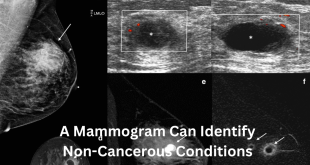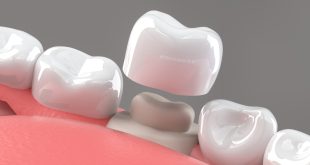Premature ejaculation (PE) is a common sexual health concern that affects many men and their partners. Despite its prevalence, the condition can create emotional and physical strain in relationships, often leading to feelings of frustration, inadequacy, or disconnection. However, by approaching the issue with understanding, patience, and proactive steps, couples can navigate this challenge together and strengthen their bond. This comprehensive guide explores how to deal with premature ejaculation in a relationship while fostering intimacy and mutual support. Empower your moments with Cenforce 100 mg for enhanced performance.
1. Understanding Premature Ejaculation
To effectively address PE, it’s crucial to understand what it is and what causes it. Premature ejaculation is characterized by a lack of control over ejaculation, which occurs sooner than desired, often within one to two minutes of penetration.
Common Causes of PE
- Psychological Factors: Stress, anxiety, depression, or relationship issues can contribute to PE.
- Biological Factors: Hormonal imbalances, heightened penile sensitivity, or underlying medical conditions may play a role.
- Past Experiences: Traumatic or rushed sexual experiences can influence sexual performance.
By understanding the causes, couples can approach the issue with empathy and focus on finding effective solutions.
2. Open and Honest Communication
Communication is the cornerstone of a healthy relationship, especially when addressing sensitive issues like PE. Initiating a conversation about sexual health may feel uncomfortable, but it is essential for mutual understanding and problem-solving.
Tips for Talking About PE
- Choose the Right Moment: Discuss the issue during a relaxed and private time, not immediately after intimacy.
- Use Empathy and Kindness: Approach the topic without blame or criticism. Frame the conversation as a shared challenge to overcome together.
- Encourage Dialogue: Allow your partner to share their feelings and perspectives, ensuring they feel heard and valued.
By fostering an open dialogue, couples can build trust and work collaboratively toward a solution.
3. Behavioral Techniques to Improve Control
Several practical methods can help manage premature ejaculation by increasing control and prolonging intimacy. These techniques can be practiced individually or as a couple.
The Start-Stop Method
This technique involves pausing sexual activity when nearing climax and resuming once the sensation subsides. Repeating this process can gradually build control over time.
The Squeeze Technique
In this method, gentle pressure is applied to the base of the penis when arousal peaks, temporarily reducing the urge to ejaculate.
Pelvic Floor Exercises
Strengthening the pelvic floor muscles through Kegel exercises can improve ejaculatory control. These exercises involve contracting and relaxing the muscles used to stop the flow of urine.
By integrating these techniques into your intimate routine, couples can enhance their physical connection while addressing PE.
4. Explore Medical and Therapeutic Options
In some cases, medical or therapeutic interventions may be necessary to manage PE effectively. Consulting a healthcare professional can provide personalized guidance and treatment options.
Medications
Certain medications, such as topical anesthetics or selective serotonin reuptake inhibitors (SSRIs), can help delay ejaculation by reducing sensitivity or altering chemical signals in the brain.
Counseling or Therapy
Psychological counseling or sex therapy can address underlying emotional or relationship issues contributing to PE. A trained therapist can guide couples through exercises to improve communication and intimacy.
Natural Remedies
Some individuals explore herbal supplements or natural remedies to manage PE. While these options may help, it’s essential to consult a healthcare provider before use to ensure safety and efficacy.
5. Strengthen Emotional and Physical Intimacy
PE often affects not only physical intimacy but also the emotional connection between partners. Rebuilding intimacy requires effort from both individuals.
Prioritize Non-Sexual Intimacy
Focus on non-sexual forms of affection, such as cuddling, kissing, or holding hands. This can reduce performance pressure and reinforce emotional closeness.
Redefine Sexual Pleasure
Shift the focus from penetration to exploring other forms of intimacy. Foreplay, oral sex, or mutual stimulation can enhance satisfaction without relying solely on intercourse.
Practice Patience
Overcoming PE takes time and effort. Celebrate small victories along the way, and remain patient and supportive of each other’s progress.
6. Create a Healthy Lifestyle Together
Lifestyle changes can have a significant impact on sexual health. By adopting healthy habits, couples can support overall well-being and improve their sexual experiences.
Manage Stress
Stress and anxiety are common contributors to PE. Incorporate relaxation techniques, such as meditation, deep breathing, or yoga, into your daily routine.
Maintain Physical Fitness
Regular exercise improves circulation, stamina, and overall health, all of which contribute to better sexual performance.
Adopt a Balanced Diet
A nutrient-rich diet that includes fruits, vegetables, whole grains, and lean proteins supports hormonal balance and energy levels. Avoid excessive alcohol, caffeine, and smoking, as these can negatively affect sexual performance.
7. Address the Emotional Impact on Both Partners
Premature ejaculation can affect both individuals in a relationship. Addressing the emotional impact is essential to maintaining a strong and supportive bond.
Acknowledge Your Partner’s Feelings
PE may lead to frustration, self-doubt, or feelings of inadequacy for both partners. Acknowledge and validate these emotions to foster mutual understanding.
Reassure Each Other
Offer reassurance that the condition does not define the relationship or the individual. Express appreciation for each other’s efforts and commitment to working through the issue.
8. Seek Professional Support Together
If PE significantly impacts the relationship, consider seeking help from a professional counselor or sex therapist. Working together with a trained expert can provide valuable tools and insights for overcoming challenges.
Conclusion
Dealing with premature ejaculation in a relationship requires patience, empathy, and a proactive approach. By fostering open communication, exploring practical techniques, and seeking professional support when necessary, couples can address the issue together and strengthen their connection. Remember, PE is a manageable condition, and with commitment and collaboration, it is possible to build a fulfilling and satisfying relationship that transcends physical challenges.







